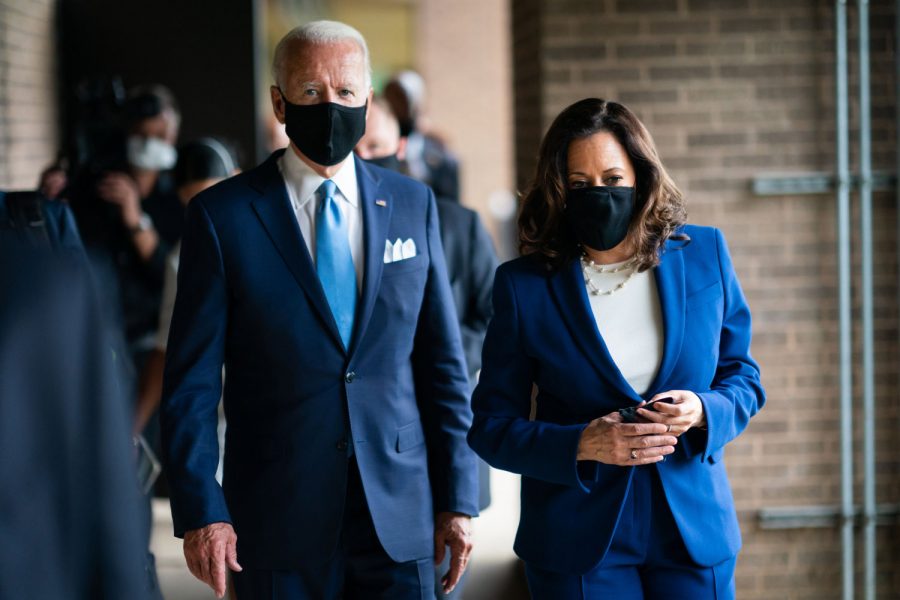President Biden makes big strides in his first week as president
Joe Biden signed off on 30 executive orders during his first few days in office, primarily targeting the COVID-19 pandemic, civil rights, immigration, and climate change
January 29, 2021
Since the inauguration of President Joseph R. Biden on Jan. 20, his administration has already made significant strides to push his agenda. Within the first three days of his term, President Biden has signed a staggering 30 executive orders.
The executive orders address a myriad of topics including the COVID-19 pandemic, immigration, recent civil rights issues, and climate change. Many of these executive orders reverse or end directives enacted by former President Donald Trump. Here are four things you need to know about the most recent executive orders from the White House:
Ending the COVID-19 Pandemic
The first order of business for the Biden administration is to guide the United States out of the ongoing COVID-19 pandemic, which, as of Jan. 29, has claimed the lives of over 430,000 Americans and counting.
The executive orders that were passed included reversing the United States’ withdrawal from the World Health Organization (WHO), mandating mask-wearing on federal property, creating the COVID-19 Pandemic Testing Board, simplifying the delivery of government stimulus checks, extending the moratorium on evictions and foreclosures, and extending the pause on student loan payments until September.
These directives provide a clear plan of action to quickly bring an end to the COVID-19 pandemic that the previous administration lacked. Former President Trump downplayed the virus from the very beginning, consistently dismissing the advice of scientists and medical experts. President Biden vows to do the opposite, showing his support for science and medical professionals in his agenda.
Welcoming and Supporting Immigrants
President Biden signed several executive orders that provide protections for immigrants to the United States. Many of these directives reverse or end executive orders enacted by former President Trump, who was widely known for his anti-immigration policies.
Among the new executive orders passed, President Biden revoked strict immigration policies focusing on finding and deporting undocumented immigrants, ended the travel ban from seven Muslim-majority countries, and cut off funding for the Mexico-U.S. border wall. He is also mandating that undocumented immigrants be counted in the census.
President Biden hopes to reform the current immigration system to allow immigrants to be welcomed and supported in their arrival to the United States. These directives are drastically different than the ones enacted by former President Trump who strived to prohibit immigration in numerous ways during his presidency.
Eliminating Discrimination
Some of the recent executive orders signed by President Biden show a commitment to ending discrimination on the basis of race, gender identity, and sexual orientation. These ambitions appear to be even more appreciated by the public considering the recent events of the past year, such as the Black Lives Matter protests following the deaths of George Floyd and Breonna Taylor.
Recent executive orders in this field include promoting nation-wide racial equity and support for underserved communities, ending the ban on transgender people from serving in the military, promoting stronger relationships with indigenous tribes, and once again barring government agencies from discriminating on the basis of gender identity or sexual orientation.
President Biden has previously shown strong support for disenfranchised groups, something he wishes to continue during his time as president by combating systemic racism and promoting racial justice. This is once again a sharp contrast to the actions of former President Trump, who refused to denounce support from multiple white supremacist groups while in office, even on national television.
Reversing Climate Change
Another topic of interest in the early days of the Biden administration is the environment, as many of President Biden’s executive orders demonstrate his position on climate change. While climate change is a controversial topic for many people, the president expressed a clear desire to protect the environment with recent directives.
Recent executive orders include revoking the permit for the Keystone XL pipeline, which will protect the Arctic National Wildlife Refuge and reduce methane emissions in the gas and oil sectors in the process, and rejoining the Paris Climate Accords.
While former President Trump continuously denied the existence of climate change during his presidency, President Biden fully acknowledges the current climate crisis and hopes to start the clean energy revolution in the United States.
Local Opinions
Regarding the recent executive orders passed by President Biden, Margot Morgan, an assistant professor of political science at IU Southeast, said, “It’s good. It’s a signal to the American people of what the Biden Administration’s priorities are and what he would like Congress to do.”
Morgan felt it was important to point out why executive orders can differ so drastically from one president to another. Since executive orders are not policy or law, they are easy to change between presidencies.
“Until Congress actually passes laws that put this stuff in stone, it can easily be undone by the next president,” she said.
While executive orders are not absolute law, the recent ones enacted by President Biden provide a solid view of his administration’s priorities and what the next four years may look like for the United States.


